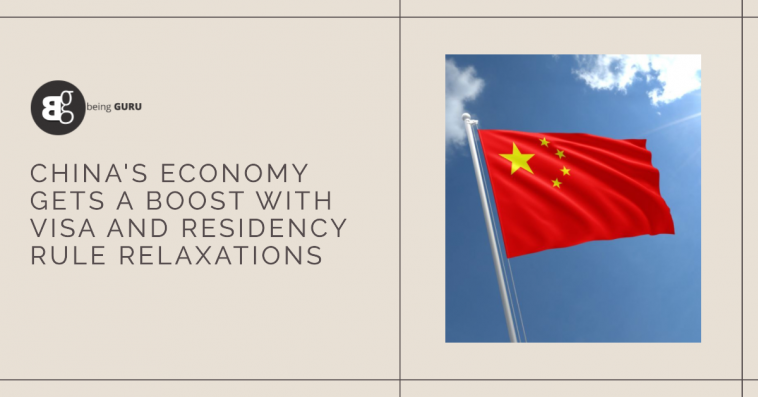Introduction: A Strategic Move to Revitalize China’s Economy
China has undertaken a number of policies to foster economic growth and free movement inside the nation in an effort to revive its flagging economy. These initiatives, announced by the Ministry of Public Security, ease visa requirements for visitors on business as well as make changes to the contentious “hukou” permanent resident program. These actions are intended to increase economic activity, combat youth unemployment, and grant Chinese citizens equal access to public services.
Visa on Arrival: A Welcome Policy for Foreign Businesspeople
China has introduced a new visa policy to attract foreign investment and stimulate trade activities. Now, foreign businesspeople visiting China for trade negotiations, expos, conferences, or investment purposes can obtain visas on arrival. This eliminates the need for them to apply for visas at Chinese embassies or consulates in their home countries, streamlining the process and encouraging more international collaboration.
Easing the Hukou System: Enhancing Mobility and Access
The hukou system, which has historically designated Chinese residents as either “urban” or “rural,” has made it difficult for anyone looking to emigrate within the nation. Even though Chinese citizens are free to live and work anywhere in the country, they have to register in the place where they were born in order to receive basic public services like health insurance and education.
China is lowering registration restrictions and encouraging rural individuals who can work and live in cities to settle there with their families in order to alleviate this issue and promote urbanization. This action strives to support balanced urban growth and offer all citizens, regardless of their hukou status, equitable access to public services.
The Economic Context: A Need for Revival
China’s post-Covid economic recovery has encountered hurdles in recent months, largely due to sluggish consumption and a crisis in the real estate sector. Due to these difficulties, the GDP only increased by 0.8 percent during the first and second quarters of the year. Furthermore, youth unemployment has reached historic highs and now stands at over 20%.
The Road to Recovery: 26 New Measures
In response to the economic challenges, the Ministry of Public Security introduced 26 new measures. These initiatives encompass various aspects of economic activity and aim to invigorate growth across multiple sectors.
The Impact on China’s Economy: A Positive Outlook
With the implementation of these measures, China anticipates an economic boost. The visa-on-arrival policy for foreign businesspeople is expected to attract more international investors and foster business partnerships. Simultaneously, easing the hukou system will encourage rural-to-urban migration, driving urban development and increasing consumer spending.
Conclusion: A Path to Renewed Prosperity
China’s choice to loosen visa and residency requirements shows that it is taking a calculated approach to boosting its economy and fostering social cohesiveness. The nation wants to foster an atmosphere that is favorable to economic development and growth by fostering free movement and fair access to public services. As these reforms take effect, they are expected to put China back on the path to prosperity while promoting a future economy that is more dynamic and inclusive.




